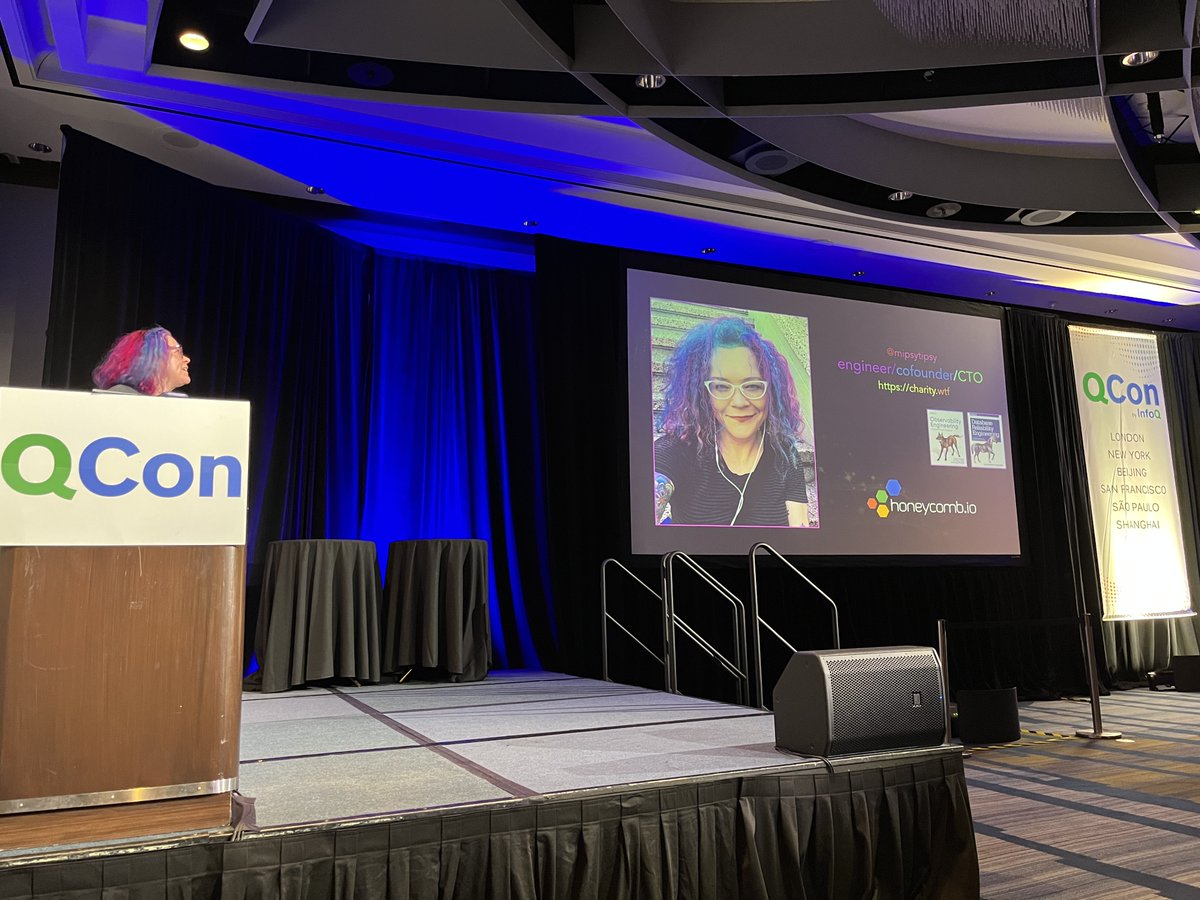As SREs, we need to build the narrative of our work’s value.
the future of all software is at stake.
@caseyrosenthal builds a beautifully illustrated narrative at #SREcon

the future of all software is at stake.
@caseyrosenthal builds a beautifully illustrated narrative at #SREcon


Like Security, SRE’s value hides in all the incidents that don’t happen.
So its easy to ignore. But people and legislative bodies value it.
The Success in SRE is Silent
So its easy to ignore. But people and legislative bodies value it.
The Success in SRE is Silent

and if our success remains silent, our profession (and software development in general) will go the way of security: regulation. 

Regulation means more gatekeeping, for people and for small companies. it means enforced “best practices” that are counterproductive and suck the joy out of our work.
@caseyrosenthal #srecon22
@caseyrosenthal #srecon22

How can we demonstrate the value of SRE?
not quantitative methods. Metrics like nines of availability or MTTR don’t represent customer experience.
not quantitative methods. Metrics like nines of availability or MTTR don’t represent customer experience.

Describe SRE success with qualitative methods. Ask developers for reactions, for learning. Notice behavior change. And then (with the most effort) demonstrate business results.
Note that the outcome is not “reliability.” We can’t “prove reliability.”
@caseyrosenthal #srecon22
Note that the outcome is not “reliability.” We can’t “prove reliability.”
@caseyrosenthal #srecon22
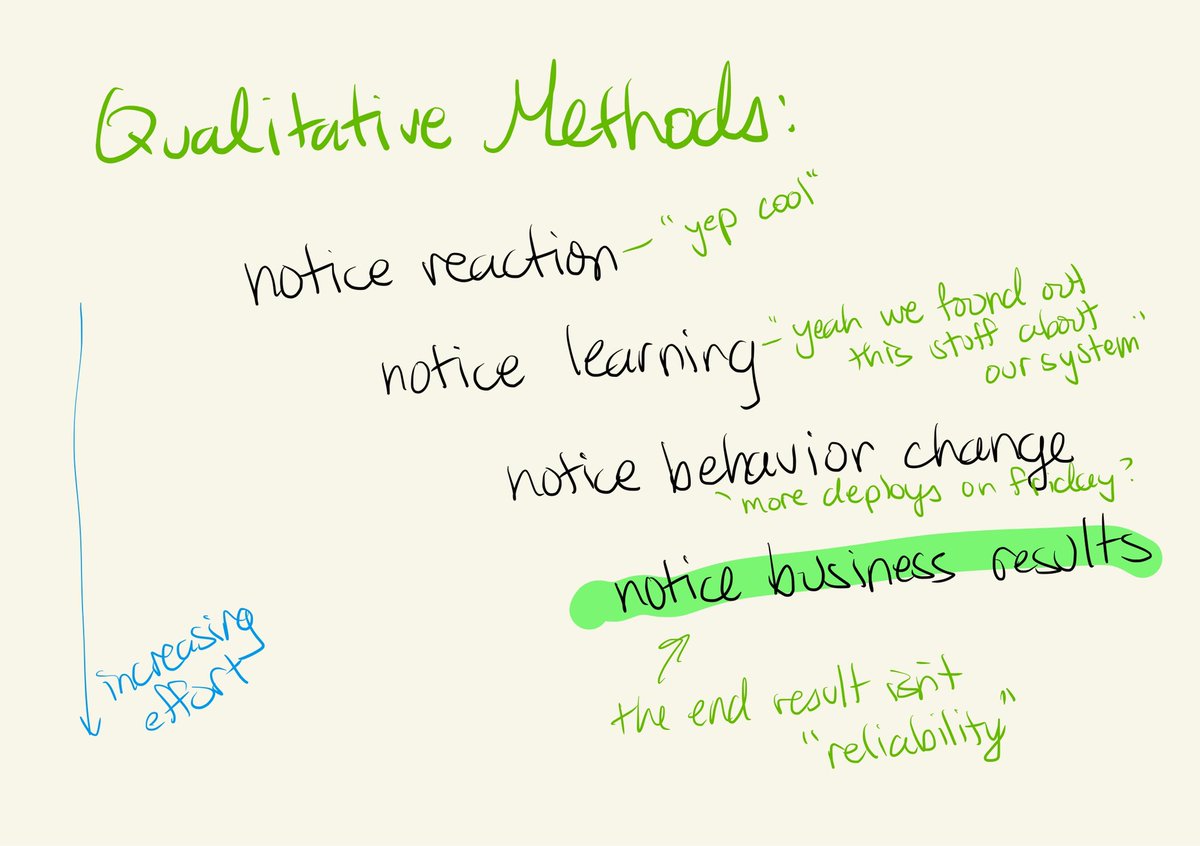
SRE is not only slaying monsters. Our work is organizational learning, and the business results enabled by that.
Telling the story of the value of our work on availability can preserve our freedom to learn, improve, and grow the field.
@caseyrosenthal #srecon22


Telling the story of the value of our work on availability can preserve our freedom to learn, improve, and grow the field.
@caseyrosenthal #srecon22
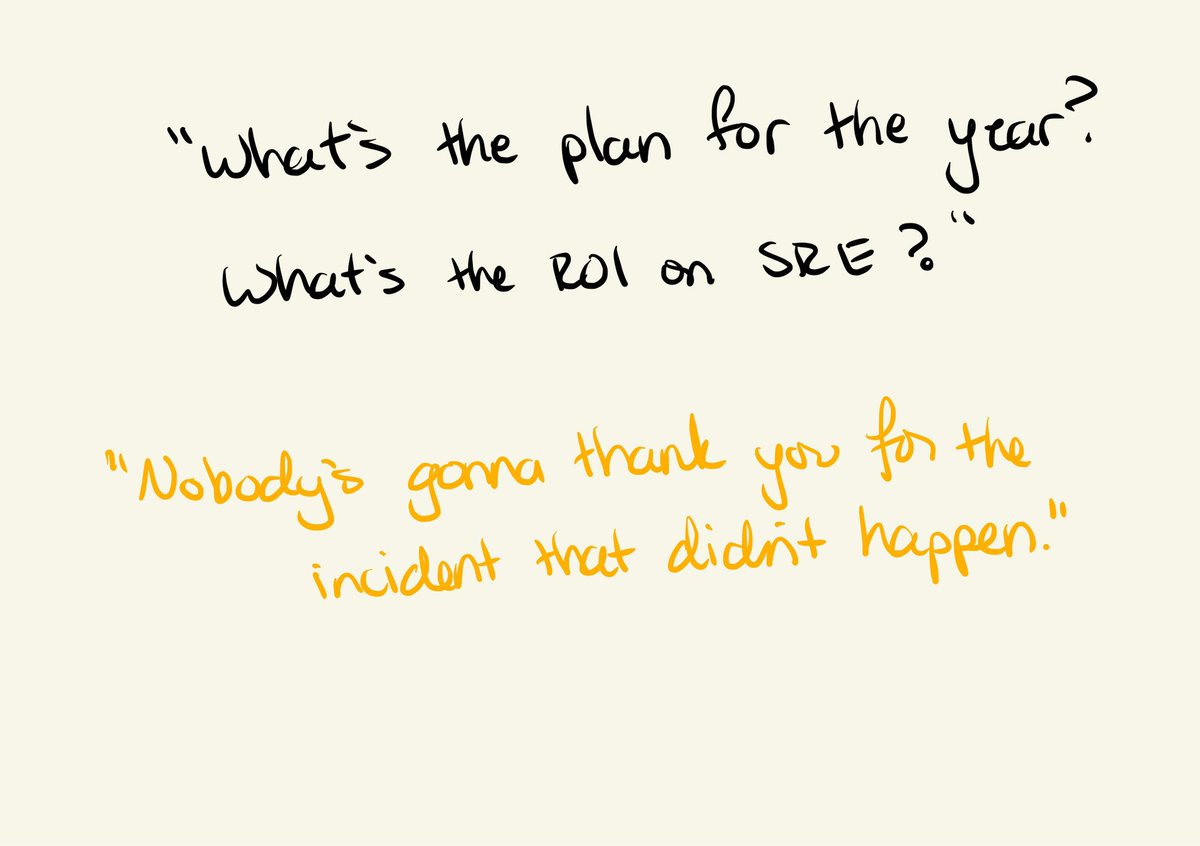
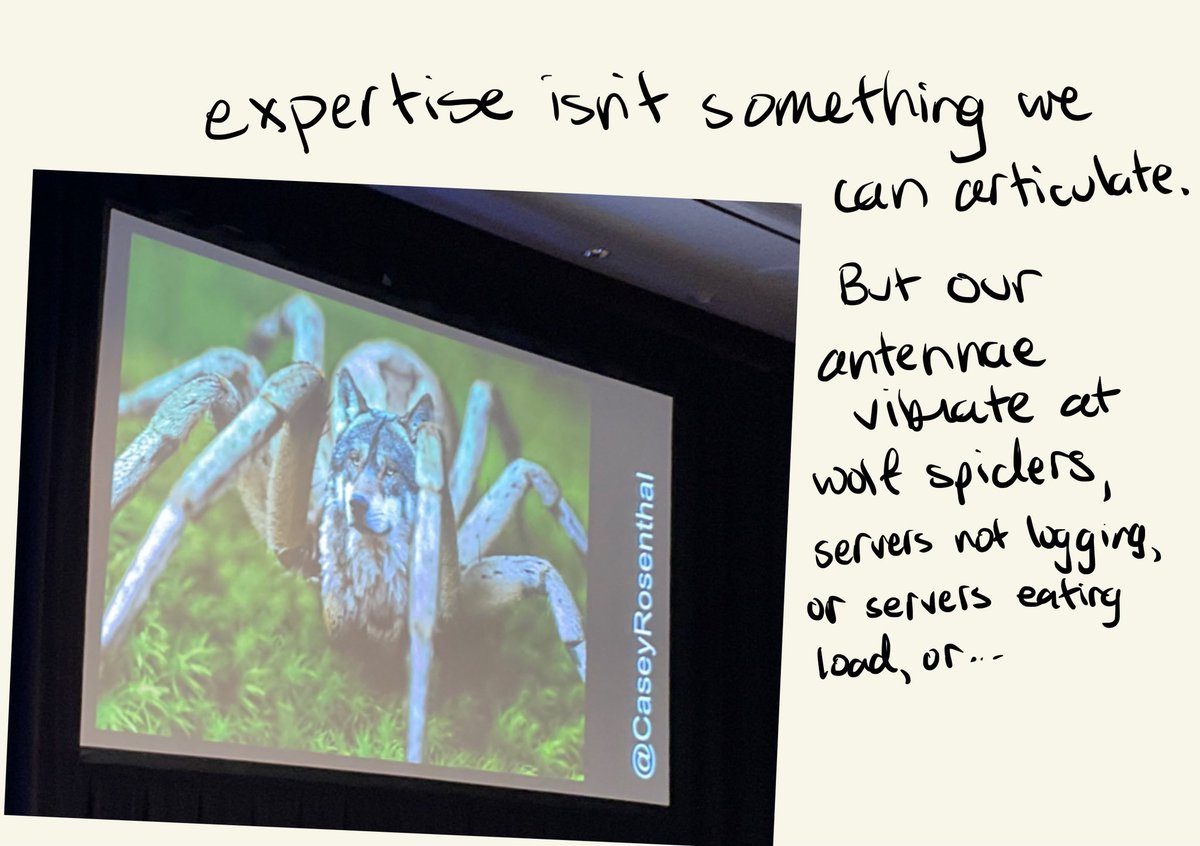
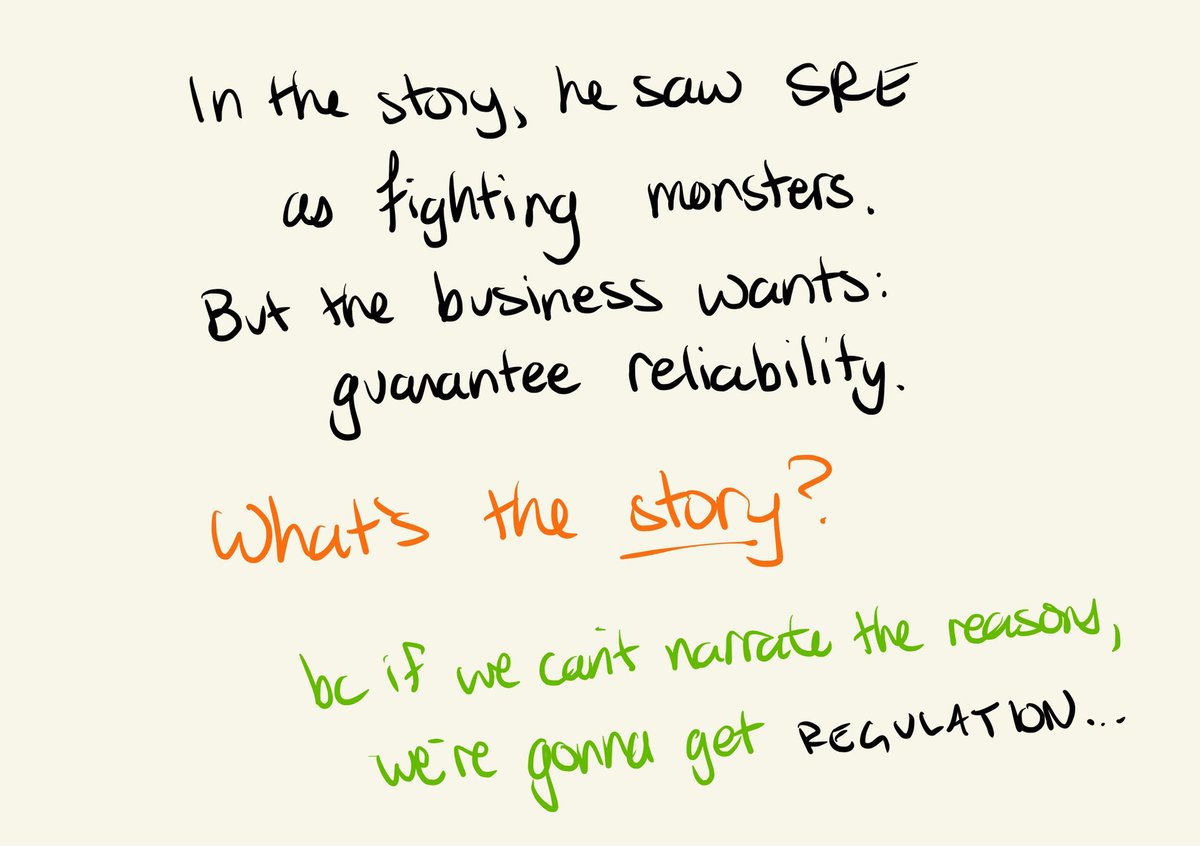
• • •
Missing some Tweet in this thread? You can try to
force a refresh















